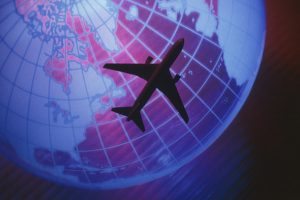If you've been following frequent-flyer programs in only a general way, you may not be fully aware of the fundamental changes that airlines are making. Within a year or two, that program you thought you knew may look like something completely different. The changes are occurring on both sides of the main programs.
Earnings. Here, you've had plenty of warning. Programs are shifting from basing earnings on mileage flown to money spent. Quite a few lines have already made the shift:
- Among the larger domestic lines, JetBlue and Virgin America based point earnings on ticket price from the beginning, and Southwest switched to that formula years ago.
- Delta and United announced last year that they would adopt similar dollar-based earning schedules, and it's highly likely that American will follow suit as soon as it fully integrates the American and US Airways programs.
- Many big foreign lines, along with Air Canada, approach the problem a bit differently. Instead of tying earnings directly to ticket price, they still base earnings on miles flown, but they award reduced percentages of actual mileage on cheaper tickets, on some lines down to no earning at all on the cheapest.
- For now, Delta and United still base elite status on miles, but that, too, it likely to change.
Why the big airlines do this is no secret. Their real objective is to retain the loyalty of frequent traveler "road warriors" who rack up lots of flights, typically pay top dollar for flexible domestic tickets, and often pay top-top dollar for business class on overseas trips. Their loyalty is crucial. The industry's conventional wisdom says, on the other hand, that leisure travelers base airline choice mainly by price; accordingly, their loyalty, if any, is worth very little. And, to be honest, there's a lot of truth in that conclusion. More lines will follow.
Awards. Changes on the award side are a bit sneakier, and just beginning to emerge. British Airways is probably the leader of this move; for several years, it has based its award table on mileage zones. Short trips require as little as 4,000 miles, compared with some other lines' programs that charge 25,000 miles for a domestic trip, regardless of length. Although most North American lines' programs started out with that "one size fits all" rate of 25,000 miles for a domestic round-trip of any length, over the years Air Canada, Alaska, and United added reduced-mileage short-haul awards, as Hawaiian does for interisland trips.
Related: The Airline with the Best Award-Seat Availability
But another big change is also coming, spearheaded by Delta. That line no longer publishes an award chart at all. Instead, when you enter a trip you want to take, the website tells you how many miles you need. As far as I can tell, Delta's award requirement is at least somewhat related to the cost of buying a ticket. And, in my recent experience, even the lowest mileage Delta shows is a lot higher than the old award chart specified.
I don't know of any other North American airline that has done away with its mileage chart—yet. But as I've often noted, in the airline business, nothing gets copied faster than a bad idea.
The Upshot. How do you, as a consumer, react to the changes? There's no obvious answer, but I can make a few suggestions:
- If you like earnings based on mileage flown, Alaska and Hawaiian retain the traditional earnings formula.
- If you prefer the traditional award chart mileage requirements, Alaska and Hawaiian, along with Air Canada, American, and United, retain their charts. Alaska and Hawaiian also provide for award trips on a wide range of partner airlines.
- You have no guarantee that Alaska and Hawaiian won't follow the giants for both earnings and award formulas.
- If you like to use miles for short trips, the new award system may be an advantage.
But overall, my late wife's view, "frequent flyer miles do not improve with age," remains valid. Regardless of the award schedule, big airlines will almost certainly devalue them in coming months and years. So, use 'em while you can.
You Might Also Like:
- 9 Unusual Travel Scams That Could Ruin Your Trip
- 10 Secrets of Ultracheap Travel
- 10 Pro Tips for Surviving a Long Flight






